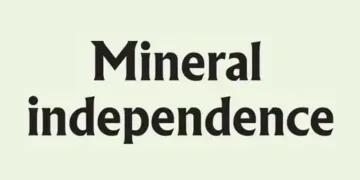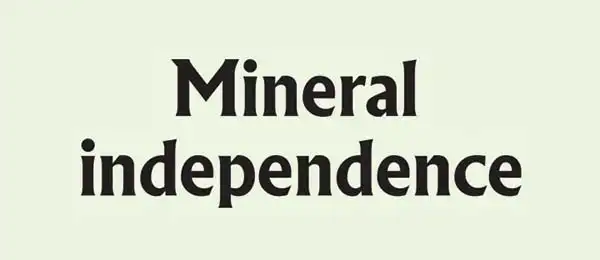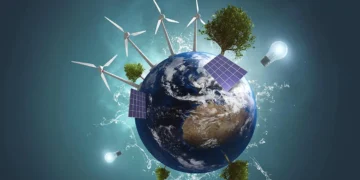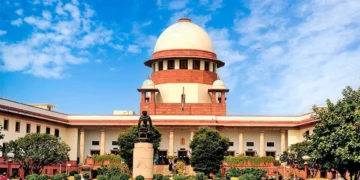 INDIA’S quest for critical minerals has begun. The latest auctions of the firstever tungsten and cobalt mineral blocks are promising steps forward. The auction saw Hindustan Zinc Limited, a Vedanta Group subsidiary, emerging as the top bidder, securing mining rights for two tungsten blocks – one in Nayakkarpatti, Tamil Nadu, and the other in Balepalyam, Andhra Pradesh. Vedanta also secured a cobalt block in Shimoga, Karnataka, cementing its position in India’s critical mineral exploration. Conducted under the Mines and Minerals (Development and Regulation) Act of 1957, composite licences for all three mineral blocks were awarded by the Government to mark the beginning of a new era of India’s path to mineral independence.
INDIA’S quest for critical minerals has begun. The latest auctions of the firstever tungsten and cobalt mineral blocks are promising steps forward. The auction saw Hindustan Zinc Limited, a Vedanta Group subsidiary, emerging as the top bidder, securing mining rights for two tungsten blocks – one in Nayakkarpatti, Tamil Nadu, and the other in Balepalyam, Andhra Pradesh. Vedanta also secured a cobalt block in Shimoga, Karnataka, cementing its position in India’s critical mineral exploration. Conducted under the Mines and Minerals (Development and Regulation) Act of 1957, composite licences for all three mineral blocks were awarded by the Government to mark the beginning of a new era of India’s path to mineral independence.
These composite licences are granted for areas where the Government has completed preliminary exploration, but further exploration is required. Under CL, successful bidders are tasked with conducting detailed geological exploration to confirm mineral deposits. Once the mineral content is validated, bidders can apply to state Government for a mining lease. Minerals such as copper, lithium, nickel, and cobalt are classified as critical minerals, as they, along with some rare earth elements, are essential for the world’s transition to clean-energy technologies.
Tungsten, also known as ‘wolfram’, is a metal of strategic importance and crucial for industrial development. Used across industries – from semiconductors and consumer electronics to aerospace and medical devices – it is prized for its high density and ability to withstand high temperatures. Currently, China dominates global tungsten production, accounting for over 85 pc of the total production. Combined with Russia, the two make up nearly 90 pc of the world’s tungsten supply.
According to the Indian Mineral Yearbook, India currently relies entirely on imports and recycling to meet its tungsten demand as there is no domestic production of tungsten ore and concentrates. Amid growing concerns about potential supply risks, India’s recent success in auctioning its first-ever tungsten block reflects a growing awareness of risks in the critical minerals supply chain, and a proactive effort to mitigate them.
Cobalt, the silver metal, is essential for the world’s transition to clean energy, with demand projected to triple by 2035, primarily driven by the EV boom. Congo dominates the global cobalt supply, accounting for 67 per cent. However, concerns over the Central African Republic’s stability, corruption, and child labour practices raise questions about the reliability of future supply. Although India has significant estimated cobalt deposits, it currently meets its cobalt demand entirely through imports.
So, the recent auction of India’s first cobalt block is a pivotal step towards enhancing domestic exploration and building future supply chains for this critical metal. India’s efforts to secure cobalt extend beyond land. Earlier this year, it applied to the International Seabed Authority for permission to explore the cobalt-rich Afanasy Nikitin Seamount, located in the Central Indian Ocean, east of the Maldives, and about 1,350 km from the Indian coast.
The quest for critical minerals has just begun. With less than 10 pc of its potential strategic mineral reserves explored, the Modi Government is ramping up efforts to locate and secure these essential resources. New auctions, like the recent ones for tungsten and cobalt, are promising steps forward. India is building up strong international partnerships and sourcing agreements with friendly nations to create a resilient and sustainable supply chain.


























